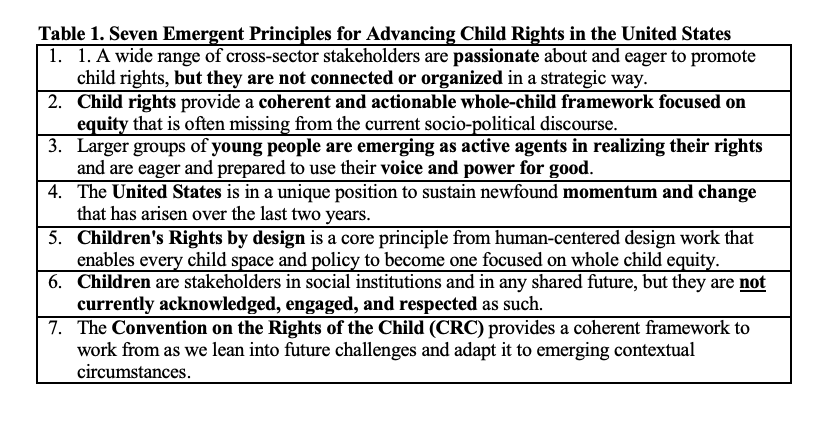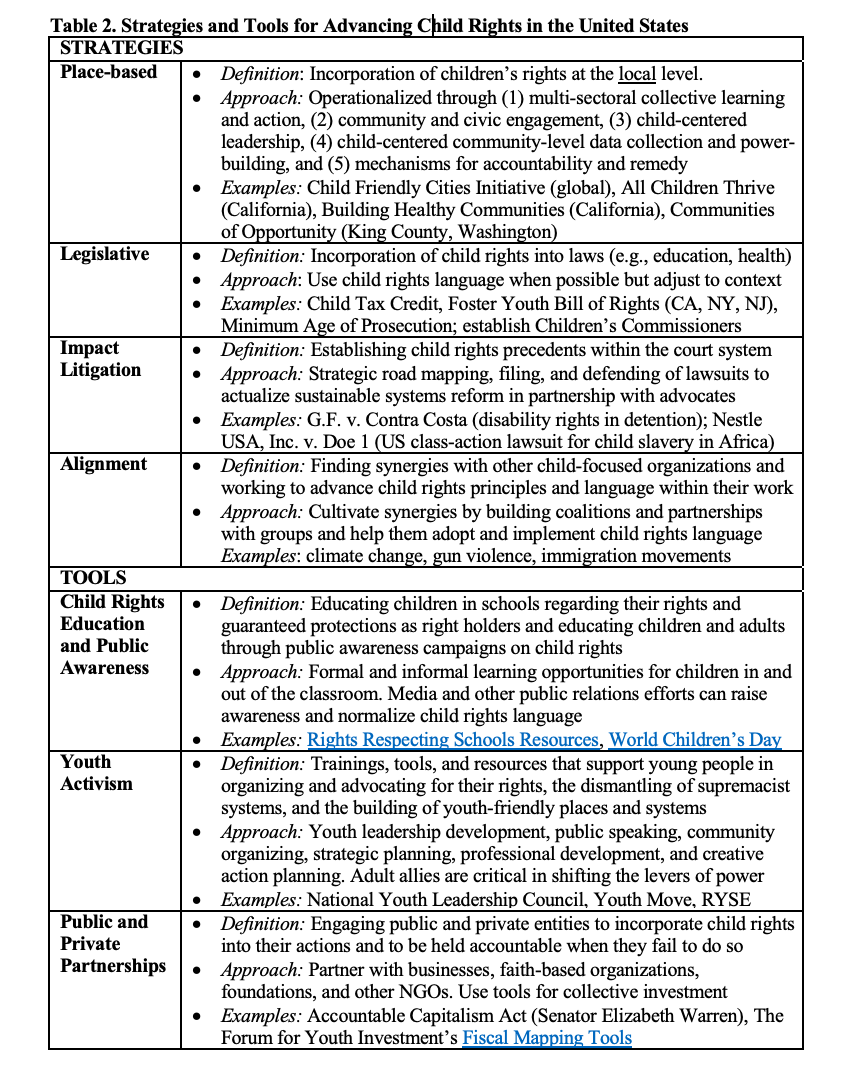General Pediatrics: All Areas
Category: Abstract Submission
General Pediatrics II
609 - Re-Imagining Children’s Rights in the United States
Saturday, April 23, 2022
3:30 PM - 6:00 PM US MT
Poster Number: 609
Publication Number: 609.209
Publication Number: 609.209
Elizabeth Barnert, University of California, Los Angeles David Geffen School of Medicine, Los Angeles, CA, United States; Joseph H. Wright, UCLA, Los Angeles, CA, United States; Charlene choi, University of California, Los Angeles David Geffen School of Medicine, Los Angeles, CA, United States; Jonathan Todres, Georgia State University College of Law, Atlanta, GA, United States; Neal Halfon, UCLA Center for Healthier Children, Los Angeles, CA, United States

Elizabeth Barnert, MD, MPH, MS
Associate Professor
University of California, Los Angeles David Geffen School of Medicine
Los Angeles, California, United States
Presenting Author(s)
Background: The United States faces a pivotal moment of potential risk and opportunity with respect to issues affecting children (ages 0-18). Although the United States remains the only United Nations member state to not have ratified the Convention on the Rights of the Child, a child rights framework may prove useful for advancing many issues affecting children in the United States.
Objective: To assess the utility of a range of strategies that could advance a children's rights agenda in the United States.
Design/Methods: We conducted an environmental scan and gathered expert input through a series of interviews, workshops, and a network learning process to identify the most strategic path for advancing child rights in the United States. We extensively examined literatures and policy strategies relevant to the US context for child rights, including those related to legal, social, and developmental aspects. From September 2020 – June 2021, we interviewed global and US experts – including 20 youth “Changemakers” and 30 adult “Allies” – to identify opportunities and barriers to advancing child rights in the United States. Through youth-led participatory action research (YPAR), we convened three interactive participatory workshop meetings with over 50 youth Changemakers and Allies to identify strategic options and barriers to child rights in the United States. Finally, through an iterative network learning process, we collectively refined emergent lessons and themes to identify core concepts and strategies relevant to advancing children’s rights in the United States
Results: Seven principles for advancing children’s rights in the United States emerged (Table 1), reflecting current gaps and opportunities for youth leadership and meaningful participation in using a child rights framework to advance equity and wellbeing for young people. Youth Changemakers and adult Allies identified specific strategies and tools likely to be feasible and impactful for moving a child rights agenda (Table 2). Overall, the collaborative learning process revealed that the mutually reinforcing goals of child rights, equity, and wellbeing can be advanced through the identified tools and strategies to leverage sustainable change in the multitude of issue areas affecting children in the United States (Figure 1).Conclusion(s): Children’s rights provide a powerful, synergistic framework for promoting and protecting child rights and wellbeing and increasing equity in the United States now and in the future.
Table 1 Table 1. Seven Emergent Principles for Advancing Child Rights in the United States
Table 1. Seven Emergent Principles for Advancing Child Rights in the United States
Table 2 Strategies and Tools for Advancing Child Rights in the United States
Strategies and Tools for Advancing Child Rights in the United States
Objective: To assess the utility of a range of strategies that could advance a children's rights agenda in the United States.
Design/Methods: We conducted an environmental scan and gathered expert input through a series of interviews, workshops, and a network learning process to identify the most strategic path for advancing child rights in the United States. We extensively examined literatures and policy strategies relevant to the US context for child rights, including those related to legal, social, and developmental aspects. From September 2020 – June 2021, we interviewed global and US experts – including 20 youth “Changemakers” and 30 adult “Allies” – to identify opportunities and barriers to advancing child rights in the United States. Through youth-led participatory action research (YPAR), we convened three interactive participatory workshop meetings with over 50 youth Changemakers and Allies to identify strategic options and barriers to child rights in the United States. Finally, through an iterative network learning process, we collectively refined emergent lessons and themes to identify core concepts and strategies relevant to advancing children’s rights in the United States
Results: Seven principles for advancing children’s rights in the United States emerged (Table 1), reflecting current gaps and opportunities for youth leadership and meaningful participation in using a child rights framework to advance equity and wellbeing for young people. Youth Changemakers and adult Allies identified specific strategies and tools likely to be feasible and impactful for moving a child rights agenda (Table 2). Overall, the collaborative learning process revealed that the mutually reinforcing goals of child rights, equity, and wellbeing can be advanced through the identified tools and strategies to leverage sustainable change in the multitude of issue areas affecting children in the United States (Figure 1).Conclusion(s): Children’s rights provide a powerful, synergistic framework for promoting and protecting child rights and wellbeing and increasing equity in the United States now and in the future.
Table 1
 Table 1. Seven Emergent Principles for Advancing Child Rights in the United States
Table 1. Seven Emergent Principles for Advancing Child Rights in the United StatesTable 2
 Strategies and Tools for Advancing Child Rights in the United States
Strategies and Tools for Advancing Child Rights in the United States